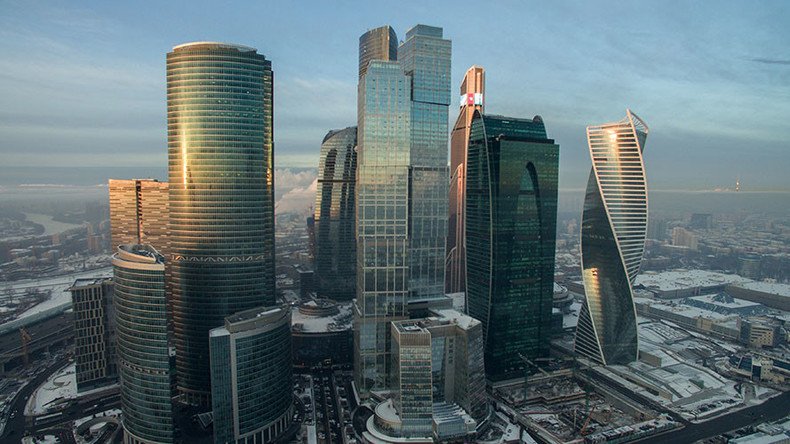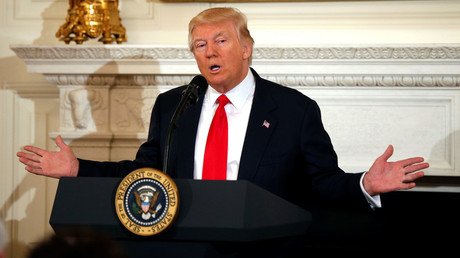Oil price, sanctions weigh on Russian stocks, Moscow unfazed

When Donald Trump won the presidential vote last year there was an outcry from his opponents due to his alleged close ties with the Russian government. Many believed that Trump would be quick to remove US economic sanctions against Russia, thus stimulating economic growth in the country.
This has not happened and is unlikely to happen, as is becoming increasingly obvious. The sanctions have remained, and so have low oil prices, pressuring Russia’s growth and stock market. These two factors are seen by some analysts as the drivers behind equity price trends in the country.
According to CNBC, the Moscow Composite Index, or Micex, is down 8 percent in the past three months, underperforming the US stock market by 15 percent, thanks to Trump’s vow to keep sanctions in place and, of course, the new lower normal for oil prices.
Now, investors are naturally wary of tapping a market that is the object of economic sanctions, even though the last two months of 2016 saw a 15 percent jump in Micex, driven by expectations of a warming in bilateral relations. This decline in equity prices we are witnessing now was to be expected once it became clear that this warming – if it takes place at all – will not be a quick deal.
In terms of relative weight, however, oil prices may have more to do with stock market developments in the world’s largest oil exporter. Despite much praise for OPEC’s deal, which saw the cartel and 11 other producers pledge to remove some 1.8 million barrels of crude from the global market, it has so far failed to bring prices much higher.
This is concerning for Saudi Arabia and other Gulf producers, as it surfaced recently, but it does not seem to be bothering the Kremlin. At the start of this year, Deputy Finance Minister Anton Siluanov said that the country could return to positive GPD growth in three years if Brent remains at $50 a barrel. Each additional $10 per barrel translates into over $28 billion in state revenue.
So what about the stock market? Micex is down by 8 percent in the year to date, but that’s a bit more than three months. The one-year change in the index, however, as of March 6, is a gain of 9.89 percent, which is not too shabby considering that 2016 marked the bottom of the oil price rout, plus the full set of sanctions.
Read more on Oilprice.com: Saudis cut light crude prices to Asia to keep market share
Analysts believe that the downward trend in the Micex will continue through the rest of the year. This is, again, only to be expected – quick spikes in equity markets driven by a single event and its potential implications are often short-lived, just like the jumps in oil prices that followed every statement from an OPEC or Russian oil official in the months leading up to the November 30 production cut deal.
Time for Trump to remove US sanctions against Russian banks – VTB head https://t.co/fWI3nc02N8
— Amanda Alverez (@AlverezAmanda) January 19, 2017
Chances are, however, that the drop will slow down, unless the new administration changes its stance on Russia to an openly hostile one. Let’s not forget, after all, that the US sanctions against Russia are not of the blanket type: they target specific individuals and legal entities close to President Vladimir Putin. This curbs the adverse effects in the context of equity market trends, so some investors can still do business in Russia.
Oil prices are likely to remain around the $55 a barrel mark for Brent and a little lower for WTI. Sanctions are also likely to remain in place. This means that Russian stocks are likely to continue their slide, but the slide will probably slow as the Trump hype fades and Russian stock markets return to business as usual.
This article was originally published on Oilprice.com












